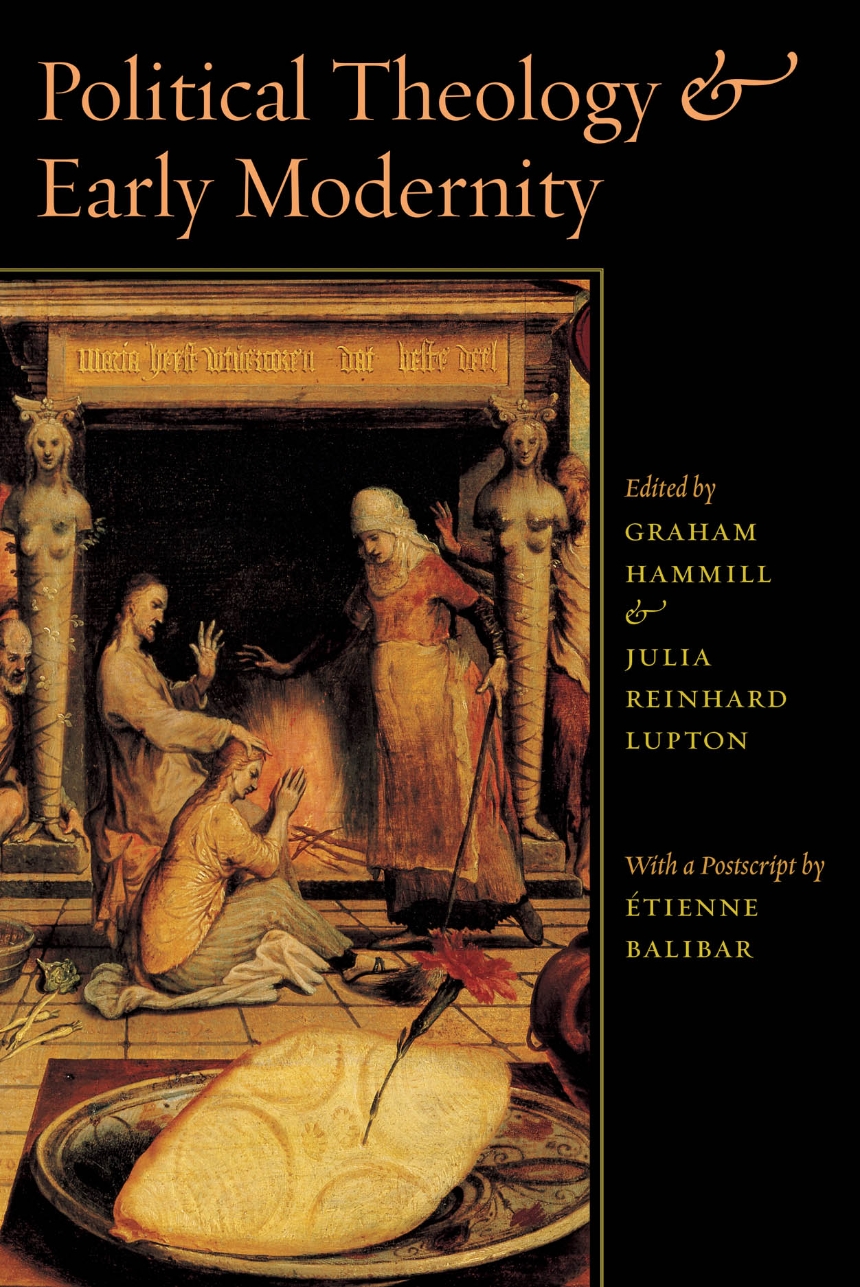Political Theology and Early Modernity
352 pages | 9 halftones | 6 x 9 | © 2012
Literature and Literary Criticism: General Criticism and Critical Theory
Philosophy: Philosophy of Religion
Reviews
Table of Contents
Acknowledgments
List of Illustrations
Introduction
Graham Hammill and Julia Reinhard Lupton
PART ONE Modern Destinations
1 Political Theology and Liberal Culture: Strauss, Schmitt, Spinoza, and Arendt
Victoria Kahn
2 The Tragicity of the Political: A Note on Carlo Galli’s Reading of Carl Schmitt’s Hamlet or Hecuba
Adam Sitze
3 Hamlet: Representation and the Concrete
Carlo Galli
translated by adam sitze and amanda minervini
4 Blumenberg and Schmitt on the Rhetoric of Political Theology
Graham Hammill
5 Political Theologies of the Corpus Mysticum: Schmitt, Kantorowicz and de Lubac
Jennifer Rust
6 Dead Neighbor Archives: Jews, Muslims, and the Enemy’s Two Bodies
Kathleen Biddick
7 Novus Ordo Saeclorum: Hannah Arendt on Revolutionary Spirit
Paul A. Kottman
8 Force and Justice: Auerbach’s Pascal
Jane O. Newman
PART TWO Scenes of Early Modernity
9 The Instance of the Sovereign in the Unconscious: The Primal Scenes of Political Theology
Jacques Lezra
10 Pauline Edifications: Staging the Sovereign Softscape in Renaissance England
Julia Reinhard Lupton
11 Striking the French Match: Jean Bodin, Queen Elizabeth, and the Occultation of Sovereign Marriage
Drew Daniel
12 The Death of Christ in and as Secular Law
Gregory Kneidel
13 Samson Uncircumcised
Jonathan Goldberg
Postscript: The Idea of a “New Enlightenment” [Nouvelles Lumières] and the Contradictions of Universalism
Étienne Balibar
translated by vivian folkenflik
List of Contributors
Index